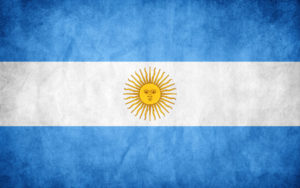“We have to shift from panicking mode to planning mode.” These wise words, by the Ambassador, Permanent Observer of Italy to the OAS, Marilina Armellin, were spoken at a trafficking event hosted by the Organization of American States (OAS) which Shared Hope attended this week. During the event we learned that most countries in South America are facing the panic of sex trafficking and struggling to find solutions to its many challenges. But many efforts are underway to help the region move from panicking to planning, and from planning to implementation. And at least one country is beginning such implementation
Panicking Over the Challenges
Marcella was born in Columbia. As a young, single mother, she was the perfect target for traffickers. She worked two jobs to care for her young child. But when the baby became sick, she lost her jobs and out of panicky desperation contacted a recruiter who offered to take her to Japan to dance and make a comfortable living. But the offer was a trap. When she arrived in Japan, her passport and money were taken and she was told she was the property of the Japanese mafia and must pay back her debt by prostituting herself. She suffered for 18 months, forced into prostitution and its associated abuse, before she was able to escape. Yet sadly, upon her return to her home country, law enforcement did not believe her. She was repeatedly questioned and asked whether she was truly trafficked or simply chose to prostitute herself. After receiving no help or support, still reeling from the effects of her trafficking experience, Marcela turned back to prostitution.
Sadly, Marcela’s story is not unique. With little education and no opportunity, coupled against the prevalence of sexual discrimination, women and girls are the most vulnerable demographic in South America. Moreover, most of the countries’ infrastructures cannot handle the volume of trafficking cases. The problem of sex trafficking is further exacerbated as these countries struggle to collect data, identify victims, and provide services for trafficked victims. In sheer panic over the issue of sex trafficking, these countries focus on punitive laws rather than victim-centered policies, and like Marcela’s case, many cases are ignored, and trafficked victims return to their exploitation.
Moving from Panic to Planning and Implementation
 While panic fills the region, one country is beginning to plan and implement policies to overcome the battle against sex trafficking. Argentina has moved from panic mode to planning mode. Argentina has begun incorporating three key policies and is seeing positive results. These policies are:
While panic fills the region, one country is beginning to plan and implement policies to overcome the battle against sex trafficking. Argentina has moved from panic mode to planning mode. Argentina has begun incorporating three key policies and is seeing positive results. These policies are:
- Identification of sexual exploitation and victims
- State-provided legal representation
- Preventing victims from being considered criminals.
Argentina has used an abolitionist system since 1930, incorporating rescue programs with police raids to help identify and separate victims from perpetrators. This allows victims to recognize their own status as a victim. Furthermore, Argentina has begun providing legal representation for victims. This educates victims on their rights and the trafficking legal framework, and gives victims a chance to heal. Finally, in 2009 Argentina began incorporating an orientation for the prosecutor’s office, briefing prosecutors on the trafficking legal frame work and the severity of the crime. They also implemented a law prohibiting victims from being punished for crimes they may have committed as a result of their exploitation. In total, Argentina’s success is coming as they increase their efforts to identify victims and then protect those victims from further exploitation. By creating this victim-centered focus, Argentina is seeing positive results and moving away from panic mode into planning and implementation mode.
Other Issues Still Needing Solutions
While Argentina is making great headway by implementing victim-centered policies, the region as a whole still faces many other issues seeking solutions. Two of these issues are: 1) the transnational nature of sex trafficking, and 2) reducing conditions that favor migration.
Too often victims are trafficked out of their own country, through many others, and eventually end at their final trafficking destination. The countries of South America need to find a way to protect victims beyond the borders of their state, providing protection in the origin country, the transit countries, and finally in the destination country.
Sex trafficking also often occurs as people attempt to migrate. In order to combat trafficking, advocates contend that we need to reduce migration, which occurs because of lack of opportunity in a person’s place of origin, and an overvaluation in the place of destination. As people migrate, they lose their support system; become unfamiliar with their surroundings, the culture, and even the language; and they become vulnerable.
Sex trafficking is a terrifying reality, and there is much work to be done in the region. But thankfully through organizations like the Organization of American States, countries and anti-trafficking groups can begin to move from panic mode to planning mode, and begin to eradicate sex trafficking.






